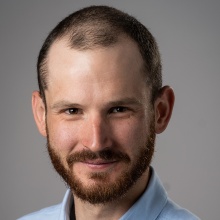Contact
Pfaffenwaldring 19
70569 Stuttgart
Germany
Room: 02.004
Subject
- sampling
- qualitative and quantitative survey methods
- statistical data analysis
- Monte Carlo simulations
- attitudes and behavior
2020
- Wahl, A., & Urban, D. (2020). Verfahren der Multiplen Imputation bei Schätzung von Strukturgleichungsmodellen mit latenten Variablen. Ein systematischer Vergleich mittels Monte-Carlo-Simulationen. SISS – Schriftenreihe des Instituts für Sozialwissenschaften der Universität Stuttgart, 50, Article 50. https://www.sowi.uni-stuttgart.de/dokumente/forschung/siss/SISS50.pdf
- Wahl, A. (2020). Multiple Imputation by Chained Equations: Eine Leistungsevaluation bei Schätzung von Strukturgleichungsmodellen mittels Monte-Carlo-Simulationen [Dissertation, Universität Stuttgart]. https://doi.org/10.18419/opus-11173
- Wahl, A., & Urban, D. (2020). Analyse und Schätzung von Mehrgruppen-Strukturgleichungsmodellen mittels SPSS und EQS. Eine praxisnahe Anleitung. SISS – Schriftenreihe Des Instituts Für Sozialwissenschaften Der Universität Stuttgart, 48, Article 48. http://dx.doi.org/10.18419/opus-11084
2019
- Mayerl, J., Krause, T., Wahl, A., & Wuketich, M. (2019). Einstellungen und Verhalten in der empirischen Sozialforschung: Analytische Konzepte, Anwendungen und Analyseverfahren. https://doi.org/10.1007/978-3-658-16348-8
- Krause, T., Wahl, A., & Wuketich, M. (2019). Wachstumsverläufe von latenten Klassen in der Einstellungs- und Verhaltensforschung. Am Beispiel der sozialen Exklusion von Kindern und Jugendlichen in Deutschland. Einstellungen Und Verhalten in Der Empirischen Sozialforschung. Analytische Konzepte, Anwendungen Und Analyseverfahren., 387–413. https://doi.org/10.1007/978-3-658-16348-8
2016
- Urban, D., Mayerl, J., & Wahl, A. (2016). Regressionsanalyse bei fehlenden Variablenwerten (missing values): Imputation oder Nicht-Imputation? Eine Anleitung für die Regressionspraxis mit SPSS. SISS – Schriftenreihe des Instituts für Sozialwissenschaften der Universität Stuttgart, 44, Article 44. http://dx.doi.org/10.18419/opus-9112
survey methods
structural equation modeling
statistical modeling
Dr. Andreas Wahl studied empirical social sciences (B.A. and M.A.) at the University of Stuttgart. After his studies, he embarked on an academic career and was a research assistant at the Chair of Sociology and Empirical Social Research at the Institute of Social Sciences at the University of Stuttgart. In addition to working on various projects, he also completed his doctorate there. He then moved to the Institute for Entrepreneurship and Innovation Research as a postdoc.
His research area is primarily focused on the methods of empirical-analytical research. He is particularly interested in questions of sampling, alternative questioning techniques for the collection of sensitive characteristics, modeling and estimation of statistical models as well as their performance in different data settings. Furthermore, he is concerned with the explanation and prediction of behavior. For example, he is currently investigating the determinants and effects of different types of entrepreneurs using structural equation modeling and machine learning techniques.


